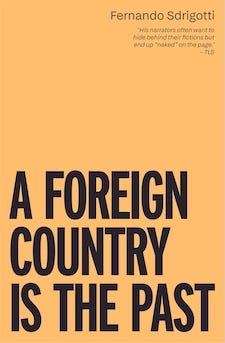Blame not the freeloader but the endless subscription grind
Under the paving stones, the paywall
Dilemmas
“Writing’s a mug’s game.” Roland Camberton’s words regularly come to my mind. And today they come to my mind, and to an otherwise blank page, as I struggle to think of an interesting idea.
An interesting idea for what, you might ask. Well, an interesting idea for this newsletter, thanks for asking. It’s sunny outside, and I’d rather be in the sun, enjoying it while it lasts; but it turns out that churning out an essay week in, week out, is quite a commitment. So right now I need to come up with an idea for something I can write on the fly, without succumbing to laziness, but also without sacrificing the rest of my afternoon. They tell you — “they” being the tedious tech ghouls who run this website — that you need to write regularly, for whatever number of readers you have, whether five or five thousand. What they don’t tell you is that writing regularly for a readership closer to the lower end becomes unsustainable sooner or later. To make matters worse, the Substack hoi polloi among whom I find myself face a bitter choice with every post: make it free in order to be read more widely — thus admitting our labour and time are worth nothing — or slap on a paywall and allow only a handful of generous customers read it, but at least take a stand against the freeloaders who swarm this platform (and maybe bait one or two into tossing a crumpled note our way). This question — to paywall or not? — is of course a muddled one, since making it on this platform hinges on a different trifecta of choices: you either come to Substack with a profile you’ve built elsewhere, or you make your readers pity you, or you offer them something useful.
Regrettably, I have no profile, too much pride to beg for your charity, and nothing remotely useful to offer. So I’ll try with insults instead, see if some tough love gets a bit of cash in my pocket.
The subscription model is rancid
But I’m being unfair with the tight-fisted scumbags who peruse this newsletter for free. Because the problem isn’t them: the problem is the subscription economy. Five pounds — the pittance that this specific newsletter costs a month — buys you a cup of coffee.1 But it also buys you a book in a used bookshop, a couple of pints of real ale in your favourite Wetherspoon, a dozen free-range eggs in the supermarket2, and who knows what else in other less privileged parts of the world… Five pounds is a lot in the meatspace, let no one tell you otherwise! Five pounds spent here, on the other hand, and you only get to read my acrid musings; and if you want to read someone else’s, that’s another five quid, kerching! How many subscriptions can the average person afford?3 Writers are being had in this model, but so are readers.
From a writer’s perspective, the shittiest bit is that this model pits peer against peer. We’re all competition here — too many of us, scrambling for the limited attention (and money) of too few. And all for nothing, no matter how much they want to sell Substack a novelty or the panacea for all authorial ills. Because in the end, here the dregs still thrash in the mud, snapping at scraps alongside other bottom feeders, while the big fish — fattened elsewhere — gorge on the tastiest catches. Plus ça change; plus c’est la même chose. If there were any way to neoliberalise the métier of being a writer even further, it would be this.4 That’s the one true novelty of Substack.
But then, maybe not all is lost. The key to staying sane here is to take what works, and ditch the rest. Having a readership at the other end of a “send post” button and writing whatever you want — great. Trying to play the game following the game’s rules (self-commodification; using a shitty social media platform to keep generating free content for the aforementioned tech ghouls; the transactional delusion of putting a price tag on our words, and hoping this price tag is more than the minimum wage) — dumb. I don’t want to be dumb, in case it isn’t clear. So a change of approach is inevitable, lest I come to hate something I love. I’m not entirely sure what this change entails, not yet. Maybe it means I’ll refuse to see you as a customer. That and focusing on building a community around reading,5 rather than bowing to the Content Moloch’s constant demand for sacrificial words.6 Maybe. I’ll figure it out eventually.
For now, I know two things. Firstly, this model doesn’t work for me or for you. Secondly, while I’m thankful to anyone surrendering their hard-earned cash to support this space, I refuse to resent the parasitical freeloading scumbags among you. I mean it.
Now go buy some eggs, cheapskate. I hope they aren’t rotten. 7
A Foreign Country is the Past, out with Influx Press in June 2025, is now available for pre-order. As a subscriber, you get a 25% discount. Just use the code AFOREIGNCOUNTRY at checkout.
In an overpriced café, it needs to be said.
At least in the UK. In the USA, I hear it won’t even buy you a single stale egg.
Conversely, how many free subscriptions can the average person manage? Last week two freeloaders subscribed to this newsletter. The Substack email informing of such honour tells me that the first one subscribes to 996 other Substacks, and the second one to 601. Can someone stage an intervention already?
Almost a year ago, I wrote this piece about what I called “The Substack trap”. A year later, I’m still trapped in it, plodding along like a tragic donkey chasing a carrot. How sad is that?
Why paywall these sessions if they aim to build a Community™? Well, for starters, you need to filter out the wankers. Let me tell you a story… Years ago, I was interviewed in Second Life — one of the strangest experiences I’ve ever had. The interview took place in a virtual auditorium, with virtual attendees, and a screen projecting images of my books, my difficult face, and other visuals. At some point, a hairy pair of human balls appeared on said screen. I mean real, non-virtual balls, that someone was flashing at us. This is exactly the kind of thing you want to avoid, and the easiest way to do so is by charging a fee. Hence why I’ll never run online events for free. Not to mention my time and words might be worth nothing, but a Zoom premium plan costs dearly. Anyway, if you're interested in this interview, you can watch it here. The ball-flashing occurs at six minutes, thirty seconds. Warning #1: the balls haven’t been blurred or censored. Warning #2: they aren’t a particularly pretty pair of balls.
To be absolutely sincere: I love the challenge of having to churn out a piece week in, week out. Doing this for several years now has been great for my discipline and craft (even if the latter might not show). Maybe I just need to reframe why I do it and what I expect from it.
Everything above has been written in jest. That said, if my writing made you angry, please feel free to tell me below, for the price of a cup of coffee!



